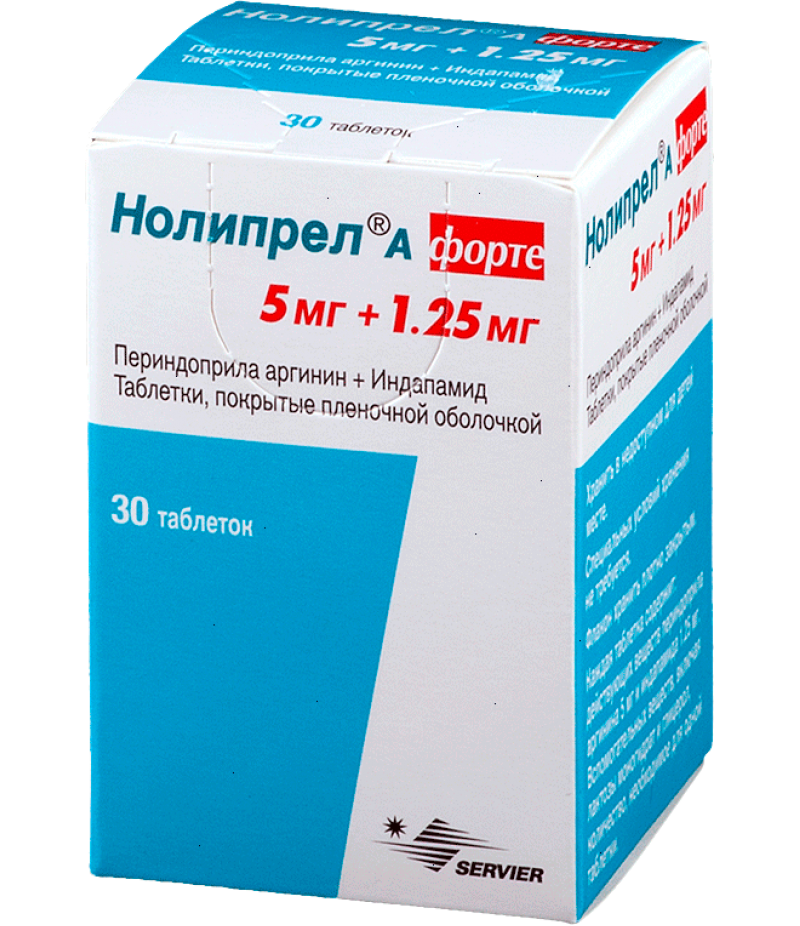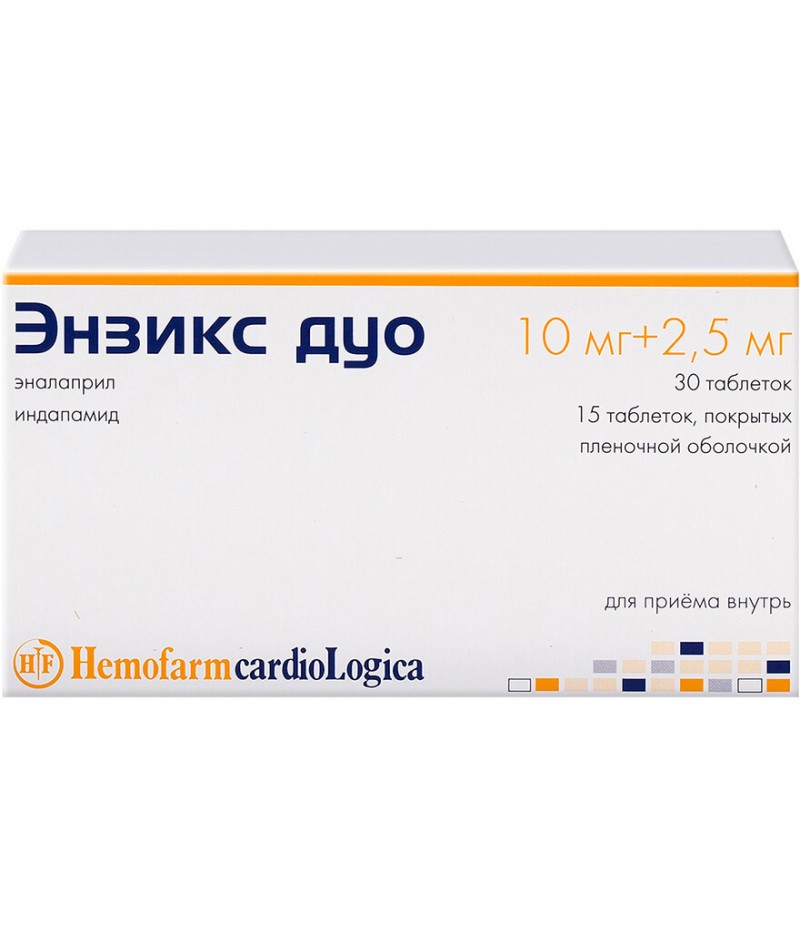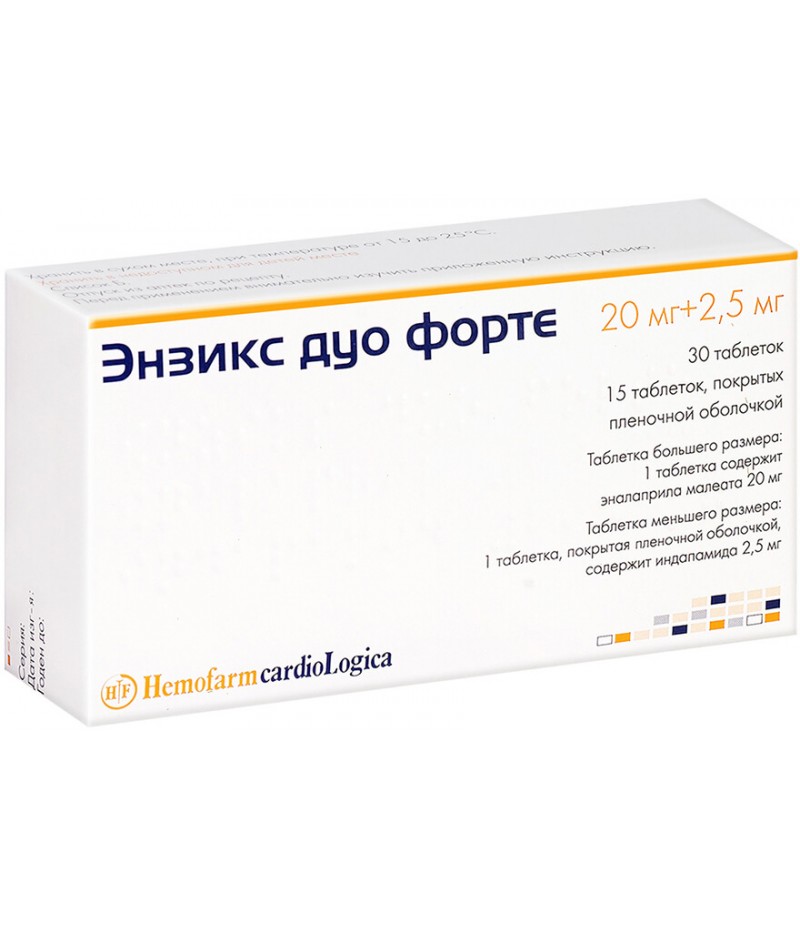Iruzid tabs 20mg/25mg #30
- $28.61
- 3 or more $28.25
- Availability:In Stock
Iruzid instruction for useReed more and buy Iruzid on this pageCompositionTablets - lisinopril dihydrate, hydrochlorothiazide, calcium phosphate dihydrate, mannitol, corn starch, gelatinized starch, indigocarmine, magnesium steara..
Tags: tabs
Iruzid instruction for use
Reed more and buy Iruzid on this page
Composition
Tablets - lisinopril dihydrate, hydrochlorothiazide, calcium phosphate dihydrate, mannitol, corn starch, gelatinized starch, indigocarmine, magnesium stearate.
Form of issue
Tablets 10 + 12.5; 20 + 12.5; 20 + 25 mg biconvex form in blistere No. 30 in a cardboard bundle.
pharmachologic effect
Antihypertensive, diuretic.
Pharmacodynamics and pharmacokinetics
Pharmacodynamics
A drug with a combined pharmacological effect. It contains lisinopril, which contains an ACE inhibitor and hydrochlorothiazide.
Lizinopril reduces the formation of angiotensin II, which leads to a decrease in the release of aldosterone. As a result, the synthesis of prostaglandins increases, blood pressure decreases, pulmonary capillary pressure, OPSS, minute blood volume increases and resistance to physical exertion in patients with CHF. Lizinopril extends the arteries more than the veins, improves the blood supply of the ischemic heart muscle, with prolonged intake decreases myocardial hypertrophy.
Antihypertensive effect after taking the drug comes in 6 hours and lasts for one day. The maximum effect is achieved after 6 hours. Stable action of the drug is manifested after 1-2 months.
The use of ACE inhibitors in patients with CHF increases life expectancy; and with myocardial infarction - slows down the development of left ventricular dysfunction.
Hydrochlorothiazide is a diuretic, the effect of which is caused by a disruption of the reabsorption of magnesium, chlorine, sodium, and potassium ions in the distal nephron. Diuretic effect is manifested after 1-2 hours and after 4 hours reaches its maximum and lasts up to 12 hours.
Antihypertensive effect - after 3-4 days, and a pronounced therapeutic effect - after 3-4 weeks.
Pharmacokinetics
Absorption of lisinopril from the gastrointestinal tract occurs quickly. Absorption is 30% and does not depend on food intake. CMax comes in 6-8 hours. Bioavailability of lisinopril 29%. It binds weakly to the beams of blood. Through the BBB penetrates slightly. In the body, lisinopril is not biotransformed, is excreted unchanged through the kidneys. Half-life is 12 hours.
Hydrochlorothiazide is absorbed by 60-80% and does not depend on food intake. CMax comes in 3 hours. Accumulates in red blood cells. Binding to blood proteins 40-70%. Weakly metabolized. It is excreted from the body in two phases, mainly with urine.
Indications for use
In the combined treatment of hypertension.
Contraindications
Hypersensitivity to the drug, severe renal failure and anuria; angioedema, hyponatremia, hepatic coma, pregnancy, lactation, diabetes mellitus in severe form, age under 18 years.
Take with caution in renal and hepatic insufficiency, aortic stenosis, arterial hypotension, gout, disorders of bone marrow hematopoiesis, old age, IHD.
Side effects
Headache, chest pain, dizziness, marked decrease in blood pressure, bradycardia, tachycardia, heart failure;
nausea, dry mouth, vomiting, abdominal pain, anorexia, dyspepsia, taste change, hepatitis, pancreatitis;
increased fatigue, impaired concentration, mood lability, drowsiness, paresthesia, muscle cramps of limbs;
dyspnoea, bronchospasm;
hair loss, photosensitivity, increased sweating;
allergic reactions;
impaired renal function, decreased potency;
fever, myalgia, arthritis, arthralgia.
Iruzid, instructions for use (Method and dosage)
How should Iruzid be taken? The drug is prescribed 1 tablet once a day. Dosage of the drug if necessary can be increased to 20 mg + 25 mg.
Patients with kidney disease require an individual selection of the dosage of individual components of the drug.
With renal failure, without complications, the initial recommended dose of lisinopril is 5-10 mg per day.
Overdose
Dry mouth, decreased blood pressure, drowsiness, constipation, urinary retention, increased irritability, anxiety.
Interaction
With simultaneous reception of Iruzid:
with potassium preparations, as well as potassium-sparing diuretics (Amyloride, Spironolactone, Triamteren), the risk of hyperkalemia increases.
with barbiturates, vasodilators, phenothiazines, ethanol and antidepressants, the risk of increased antihypertensive action increases.
with estrogens, LIP antihypertensive effect of lisinopril is reduced.
with lithium preparations - the neuro- and cardiotoxic effect of lithium is enhanced.
With Kolestyraminom and antacids, suction from the gastrointestinal tract of Iruzid decreases.
with oral contraceptives decreases their effectiveness.
Iruzid, when used concomitantly with salicylates, increases the neurotoxicity of the latter. The hypotensive effect of the drug is enhanced when taking ethanol.
Terms of sale
To buy Iruzid online the prescription is not required.
Storage conditions
At temperatures up to 25 ° C.
Shelf life - 3 years.
Reviews about Iruzid
According to clinical studies in the last 20 years, lisinopril differs from other ACEIs in that it has the lowest incidence of such a side effect as cough. That, in fact, confirm the responses of patients who for several years used drugs with this active substance without complaints from the respiratory tract.
The effectiveness of lisinopril is explained by the fact that it refers to hydrophilic substances that do not undergo biotransformation in the liver, so they normalize blood pressure more effectively than those drugs that are metabolized in the liver. In addition, it can be used for liver diseases.
In case of insufficient decrease in blood pressure when taking lisinopril alone, the patients were transferred to receive a combined preparation with the addition of small doses of hydrochlorothiazide. Such a fixed combination has the preparation Itruside, which more effectively reduced blood pressure in 95% of patients. Many note that the daily intake of 10 mg of the drug was sufficient to maintain blood pressure at a normal level. An important factor for all was the frequency of reception - once a day, since it is convenient and the patients did not forget to take the drug.
The presence of a thiazide diuretic in this dosage does not increase the risk of developing or weighting existing diabetes mellitus. The drug was more often prescribed to patients with diabetes mellitus and arterial hypertension with initial manifestations of nephropathy, since it exerts a nephroprotective effect, reducing the release of albumin with urine (microalbuminuria), increasing renal blood flow. In studies, the level of microalbuminuria has been reduced by a factor of 2 or more. Taking this medication simultaneously is a prophylaxis of the development of heart failure, given its ability to cause regression of left ventricular hypertrophy.





